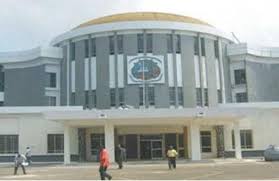-Tampering with original version of the Land Rights law could be costly
By Alloycious David, Contributing Writer
Senators seeking re-election in 2020 need to take threats from some Chiefs and traditional leaders very serious by setting aside the version of the Land Rights Act passed by the House of Representatives and pass the original version of the law submitted to the Legislature in 2014.
Chiefs and traditional Leaders under the banner of the National Traditional Council of Liberia recently threatened to vote out senators who will concur with the lawmakers to pass the Land Rights Act (LRA) passed by the lower house.
The senate needs to act urgently on the chiefs’ request to avoid being booted out of the Legislature. It has been established that during the October 2017 elections, community leaders, rural youth leaders, rural women groups, chiefs and traditional leaders canvassed against lawmakers, who supported the September 2017 passage of the Land Rights Act.
Chiefs, rural youth leaders, rural women groups and traditional leaders have undue influences, especially in rural areas and so any attempt to take their threats lightly would result into serious consequences unfavorable for members of the Senate.
The chiefs’ influences were exhibited on October 10, 2017 when they ensured that some lawmakers who publicly supported the passage of the Land Rights Act never got re-elected.
Among lawmakers who didn’t retain their seats apparently for voting in favor of the Land Rights Act are Rep. Josephine George Frances (Montserrado District # 1), Rep. Larry Younquoi (Nimba District # 8) and Sekou Kanneh (Montserrado District # 2).
Rep. Frances was defeated by Desire S. Satia, while Rep. Kanneh was defeated by Jimmy Smith of the Coalition for Democratic Change (CDC).
Mary Garnett, 30, a resident of Todee, lower Montserrado County said she didn’t cast her vote for Rep. Frances because she allegedly helped to tampered with the Land Rights Act.
Mary disclosed that her decision was influenced by her aging father, who according to her was robbed of his land awarded to a concessionaire from the Todee area in neighboring Margibi County.
She said her father’s hope of securing his land after many years was dashed by the lawmakers’ decision to omit essential portions of the Land Rights Law, which guaranteed communities rights to their lands.
In the Todee district area, there has been a massive grabbing of land to make way for rubber farms by elites from Monrovia using their influence as government officials or private business peoples, relying on support from government officials.
This grabbing of customary land by the elite, sometimes relying on tribal certificates obtained under dubious circumstances, is a critical factor undermining the rights of communities.
The current version of the Land Rights Act passed by the House of Representatives recognizes thousands of tribal certificates obtained under ambiguous circumstances, despite plea from civil society organizations and other land experts not to do so.
“Our votes are the only power we have so we used it to voiced our angers over the failure of our lawmakers to serve our interest,” Mary said in an interview over the weekend.
Amelia Flomo, 52, didn’t support the re-election bid of Nimba County Electoral District # 8 Representative Larry Younquoi, because according to her he voted for a law that take their land from them.
Rep. Younquoi is the Chairman of the House Committee Chairman on Good Governance. He was the one who made the motion for the Land Rights Act to be passed in hurry last August, despite appeals from some of his colleagues for the law to be debated before passing it.
Amelia alleged that Younquoi and colleagues altered significant segment of the Land Rights Act to the detriment of farmers and poor communities across the country.
She disclosed that communities across the country were educated by a network of civil society groups about how the lawmaker championed their own cause over the people they represent.
Albert Sonkarley, a resident of Montserrado County District # 2 said he and some members of the district didn’t vote for Rep. Sekou Kanneh, a Unity Party lawmaker because they think he didn’t adequately represent the interest of the district.
Albert alleged that Kanneh didn’t make good laws that would impact the lives of the people and said people of the district are still living in poverty.
He indicated that the Rep. Kanneh also supported the passage of the Land Rights Law recently passed by the House of Representatives.
“He didn’t get our endorsement. We never had any idea of what was contained in the Land Rights Law. Our lawmaker was under obligation to let us know, so that we can tell him which way to vote, but to side with the passage of the law without our knowledge was totally out of order,” Albert argued.
Abraham Kamara of Gibi District, Margibi County explained that they resolved not to support the re-election bid of Speaker Emmanuel Nuquay for not defending their rights against Salala Rubber Corporation (SRC).
He said it was apparently because of that that he accepted to run as vice president to Joseph Boakai of the Unity Party.
“Speaker Nuquay saw that we were not for him, this is why he abandoned his re-election quest,” Kamara said.
Although Speaker Nuquay didn’t run in the district, Kamara disclosed that the candidate he supported was never voted for because, “we transferred our anger on his candidate.”

